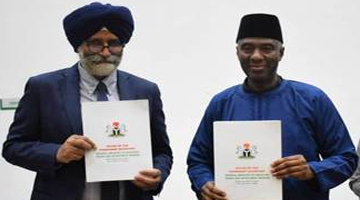Service Tax - Arrest for offences prior to 10.05.2013 is illegal
DECEMBER 17, 2013
By G Jayaprakash, Advocate
IT is a settled law thatpenal provisions cannot be applied retrospectively . An offence committed prior to insertion of the penal provision cannot be considered for measuring the gravity of the offence committed subsequently. The counting of past offences is not approved by the courts other than for preventive detentions. History not only informs but also enables for right interpretations. In alleged tax evasion cases what is the repercussion of an enactment that prescribes certain penalties for such evasions? Whether a penal provision incorporated on a date is applicable to omissions committed prior to that date?
The above subject of retrospective application of penal provisions in tax laws was the subject matter for litigation after introduction of Section 11AB & 11AC in Central Excise Act, 1944. The Revenue authorities adjudicated cases imposing applicable interest and penalty equal to tax for clearance effected prior to 28.09.1996, the date on which Finance Act, 1996(No 2) was enacted. This was as per instruction of CBE&C which was based on opinion of Solicitor General of India. However the opinion of Solicitor General and the argument of the Attorney General on the subject were not acceptable to the apex court. The apex court in Commissioner of Central Excise, Coimbatore v Elgi Equipments Ltd [2002-TIOL-781-SC-CX] held that the Mandatory penalty under Section 11AC of Central Excise Act, 1944 is prospective in operation and illegality committed prior to insertion of said section in the Act cannot be the subject matter of penalty under the said provision. In Commissioner of Central Excise, Coimbatore v M/s. M.P. Tapes [2002-TIOL-451-CESTAT-BANG] the prospective nature of Section 11AB was reiterated. In Brij Mohan v. Commissioner of Income Tax 120 ITR 1 (S.C.) it is held that penalty in respect of an act or omission prior to the incorporation of the provision is invalid. That is, an insertion of a penal provision is applicable only to an act or omissioncommitted after enactment of the law. A plethora of cases was decided based on the ratio of the above cases.
The power to arrest under the provisions of Finance Act, 1994 (Service Tax) was introduced by Finance Act, 2013w.e.f 10.05.2013 by inserting Section 91. This section inter alia empowers an officer not below the rank of a Superintendent to arrest a person if he defaulted in payment of service tax collected equal to 50 lakhs or more (a cognizable offence) and authorised by the jurisdictional Commissioner for such arrest. Section 90 was also enacted along with Section 91 to enable classification of offences into cognizable and non cognizable offences. Relevant provisions of Section 89 of the Act relating to Offences and Penalty were also substituted to align with newly inserted provisions under Section(s) 90 & 91.
The legality of prospective effect of penal provisions inIndirect Taxation cases is a settled issue as discussed above. The insertion of Section(s) 90 & 91 in Finance Act, 1994 vide Finance Act, 2013 also stand only on the same footing of Section(s) 11AB & 11AC of Central Excise Act, 1944. That is, it is effective only for an act or omission committed after 10.05.2013, the date on which Finance Act, 2013 was enacted. An Officer empowered can only arrest a person for non-payment of Service Tax if he fails to remit the amount collected and exceeds the prescribed limit (as stated in section 89(1) (ii)) if such amount pertains to the period after 10.05.2013.
The pertinent question that arises is whether the Officers of Central Excise can ignore the law settled by the Apex Court and arrest a person by clubbing tax liability computed for periods prior to 10.5.2013.
Such arrests are, as per my understanding, without the authority of law.
| (DISCLAIMER : The views expressed are strictly of the author and Taxindiaonline.com doesn't necessarily subscribe to the same. Taxindiaonline.com Pvt. Ltd. is not responsible or liable for any loss or damage caused to anyone due to any interpretation, error, omission in the articles being hosted on the site. ) |















